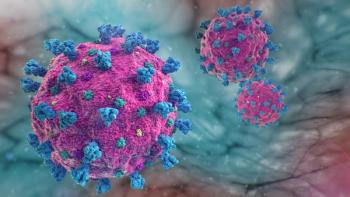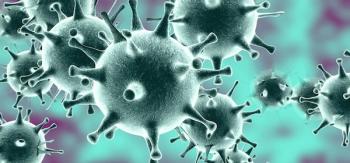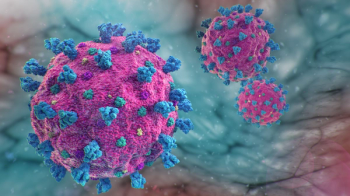
Mental health first aid trains participants to recognize risk factors and warning signs for mental health and addiction concerns.

Mental health first aid trains participants to recognize risk factors and warning signs for mental health and addiction concerns.

The online resource center will host a webinar series and provide comprehensive coverage and updates on COVID-19 through Pharmacy Times®.

John Beckner, RPh, Senior Director of Strategic Initiatives at NCPA, discusses the role of the community pharmacy in the age of COVID-19 in supporting current health care efforts, such as continuing immunizations and managing the effects of the pandemic on patients.

The Secretary of HHS, Alex M. Azar II, clarified in a statement that the PREP Act preempts state licensing laws that place restrictions on pharmacists’ ability to order and administer COVID-19 tests.

Nearly 30% of the 2773 patients with COVID-19 received systemic coagulation during their time in the hospital.

The prescription drug is indicated for facilitating tracheal intubation, and to provide skeletal muscle relaxation during surgery or mechanical ventilation.

As states begin to consider reopening businesses around the country, questions remain for pharmacies regarding appropriate strategies to protect the communities they serve from COVID-19.

Patients with COVID-19 between the ages of 20 and 59 years who also had asthma needed a ventilator to assist with breathing for 5 days more on average than non-asthmatic patients with COVID-19, according to a press release.

The FDA and Aetion have announced an agreement to collaborate on advanced analytical techniques in an effort to answer urgent research questions about COVID-19.

According to an NIH press release, researchers will analyze the medical records of up to 21,000 women to evaluate whether changes to health care delivery that were implemented as a result of the pandemic have led to higher rates of pregnancy-related complications and cesarean delivery.

Positive interim clinical data of the mRNA-1273 vaccine (Moderna, Inc) against the coronavirus disease 2019 were reported from a phase 1 study led by the National Institute of Allergy and Infectious Diseases.

To support the successful reopening of the country in a manner that prevents further COVID-19 outbreaks, the NACDS has issued a report in which it urges government action on 3 key objectives.

A harmonized and collaborative approach to coronavirus disease 2019 (COVID-19) vaccine research and development is necessary for a successful outcome.

With states reopening, pharmacies need to implement controls that will not only protect the safety and health of their employees, but also their patients.

Adverse events included self-limited nausea and diarrhea with no difference between the 2 groups.

While navigating the COVID-19 crisis, organizations should review their game plan for future emergencies.

Primary care will require a focus on individual and community health in the post coronavirus disease 2019 (COVID-19) era, according to a session presented on Thursday during the Pharmacy Quality Alliance (PQA) 2020 Annual Meeting.

The results will help the rare disease community shed light on the needs of people with rare diseases during the COVID-19 pandemic and other potential health crises, in addition to informing future research efforts.

The study aims to perform a medication risk stratification using drug claims data and to simulate the impact of the addition of various repurposed drugs on medication risk shortages in elderly people.

Top news of the week from Pharmacy Times® surrounding the novel coronavirus.

Staying up-to-date on immunizations is crucial to prevent outbreaks of vaccine-preventable diseases.

The impact of COVID-19 on pharmacy has been significant in the short-term, and recent developments have shown that there is opportunity for that to translate into long-term changes for the industry.

With the outbreak of COVID-19, pharmacists throughout the world are called not just to dispense medications but also, importantly, to be a source of critical information and support for the public.

Pharmacy Quality Solutions Annual Trend Report focuses on questions around consumer perceptions and behaviors.

The impact of COVID-19 on the health plan enterprise appears to be practical and functional rather than strategic and financial.